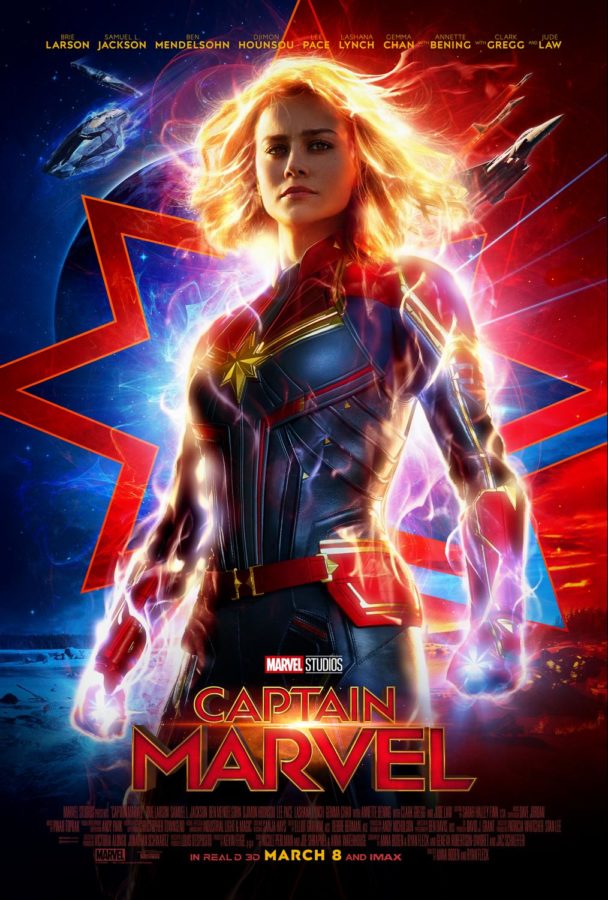Captain Marvel smashes female stereotypes, burns through expectations with flying colors
Marvel Studios’ Captain Marvel released today in theaters. The Sidekick staff writer Neha Desaraju praises the movie for its accomplishments in developing a strong female lead.
March 8, 2019
With expectations high in the wake of last year’s Black Panther, it is a welcome surprise that Marvel Studios’ Captain Marvel, released today, goes all the way to reach them.
Both Black Panther and Captain Marvel share a number of similarities—while Black Panther shattered stereotypes surrounding race and ignited discussions about what it means to be black in America, Captain Marvel has an equally daunting task—to portray a female hero in a different light.
The movie starts with a spiel about Captain Marvel (played by Brie Larson) being told by her commander and trainer that she should be less emotional in order to become a better fighter.
She ends up being very emotional and a very heroic fighter.
Through the rest of the movie, she opens up about her vulnerabilities more than any female heroine I have ever seen. In fact, it is her compassion that makes her a stronger soldier and better person.
It is this kind of hero that should be more prevalent in movies—the ones who make natural mistakes and are not seen differently for them, and definitely the ones who have seriously functional, realistic suits that are not purely for aesthetics.
The film is complemented with an amazingly beautiful, Avengers-fused soundtrack that reminded me of that of Thor: Ragnarok and Guardians of the Galaxy. Captain Marvel’s hair gets messy on a regular basis, and she has an amazing sense of humor. Somehow, that image is not portrayed as much in film, and the movie shatters nearly every stereotype I have ever seen about women in power. This truly is a little girl’s superhero.
When she meets her best friend, Maria Rambeau (played by Lashana Lynch), Rambeau mentions how much Captain Marvel meant to her for support. This is one of my favorite scenes–where it is not a woman needing validation from a man; it is a mother recalling a time when she had the support of her friend.
Captain Marvel also has inspirational stories in unlikely places. From the reuniting of a family to a message about falling but always getting back up, the movie does not only discuss female stereotypes. The film, after closer inspection, nods to a number of issues surrounding sexism and worldwide refugee crises.
It is enjoyable to see the one and only Agent Nick Fury (Samuel L. Jackson) with both eyes, and in the movie, we find out how he originally lost one of them (hint: it was not all as glorious as he made it out to be). He is a refreshing complement to Captain Marvel’s character and they get along from the beginning without any unnecessary and awkward sexual tension. Avid Marvel fans would be eager to catch references to his future endeavors.
With little twists, Captain Marvel kept me leaning forward in my seat. The post-credits scene left me speechless and wondering no longer about how Captain Marvel ties into Avengers: Endgame, coming out April 26. Pro tip: stay for the second scene after the scrolling credits as well.
Although it would be a bit confusing without a basic knowledge of Captain Marvel’s backstory, Marvel does not disappoint with their first female-led superhero film.
Future superheroine filmmakers—take note.
Follow Neha on Twitter @nehades_










